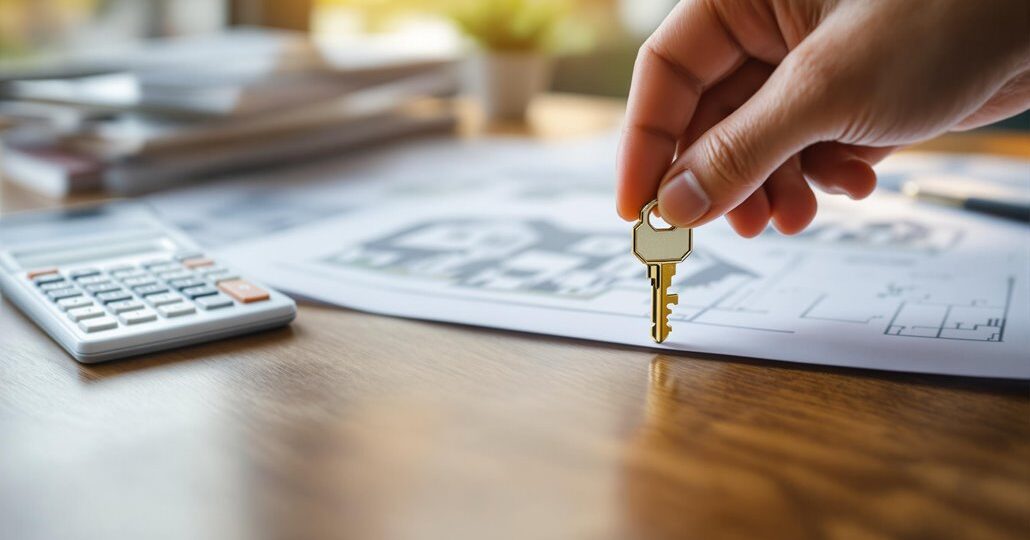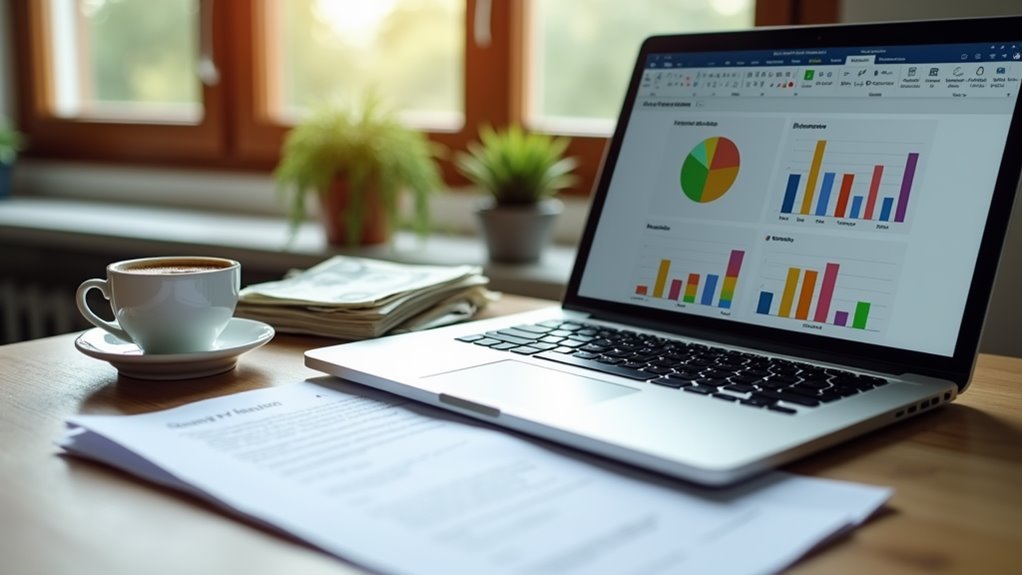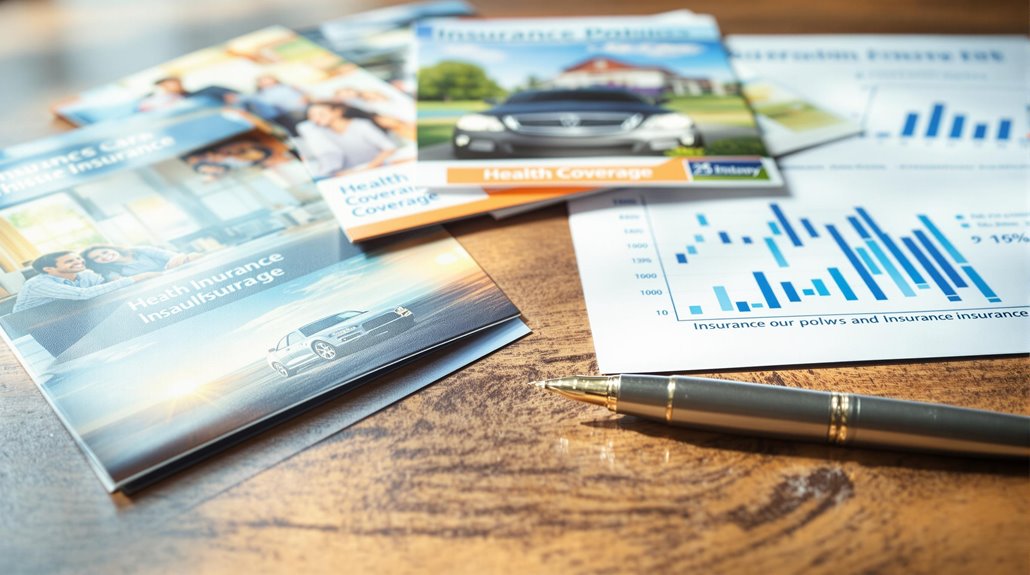
Personal loans can be a smart choice for managing your finances. You can consolidate high-interest debt into one manageable payment, saving on interest. Consider using a loan to fund home improvements that boost your property's value. They're also great for covering unexpected expenses like medical bills or repairs, providing lower rates than credit cards. If you want to explore more strategies for utilizing personal loans effectively, keep going to discover additional tips and insights.
Key Takeaways
- Consolidate high-interest debt to reduce overall financial burden and simplify monthly payments.
- Fund home improvements that can increase property value and provide a return on investment.
- Cover unexpected expenses, such as medical bills or car repairs, with lower interest rates than credit cards.
- Use personal loans to create a budget-friendly plan, avoiding fluctuating payments and stress.
- Ensure loan terms align with long-term financial goals and monitor your financial health regularly.
Consolidating High-Interest Debt

What it Looks like: When you consolidate high-interest debt using a personal loan, you typically take out a loan with a lower interest rate to pay off multiple debts, such as credit cards, medical bills, or personal loans with higher rates. For example, if you have several credit cards with interest rates ranging from 18% to 25%, you might secure a personal loan at a rate of 10%. This loan can then be used to pay off those credit card balances in full, leaving you with just one monthly payment at a more manageable interest rate.
Why It's Smart: Consolidating high-interest debt can considerably reduce your overall financial burden. By lowering the interest rate, you can save money on interest payments, allowing you to pay off the principal faster. Additionally, having a single monthly payment simplifies your budgeting and reduces the stress of managing multiple payments. This streamlined approach can foster better financial habits and help you stay on track with your repayment plan, ultimately leading to improved credit scores as you reduce your credit utilization ratio.
Things to Be Aware of: While consolidating debt can be beneficial, it's vital to approach it with caution. First, verify that the personal loan has a lower interest rate than the debts you are consolidating. Additionally, be mindful of any fees associated with the loan, such as origination fees, which can offset your savings. Finally, it's important to avoid accumulating new debt on your credit cards after consolidation; otherwise, you may find yourself in a worse financial situation than before. Developing a sound budget and sticking to it is essential for making the most of your personal loan.
Funding Home Improvements

What it Looks like: When considering home improvements, utilizing a personal loan can be an effective way to finance your projects. Whether you're looking to remodel a kitchen, add an extra room, or enhance your outdoor space, a personal loan provides you with the necessary funds upfront. This allows you to hire contractors, purchase materials, and manage other associated costs without having to dip into your savings. For example, if you decide to install new energy-efficient windows or upgrade your HVAC system, a personal loan can cover these expenses, enabling you to enjoy the benefits of a more comfortable and efficient home sooner rather than later.
Why It's Smart: Using a personal loan for home improvements can be a strategic financial decision. Many homeowners see an increase in their property value after making significant upgrades, which can ultimately lead to a return on investment that exceeds the cost of the loan. Additionally, personal loans typically have fixed interest rates and predictable monthly payments, making it easier to budget for the costs associated with your home improvement projects. By improving your home, not only do you enhance your living space, but you may also be setting yourself up for a lucrative sale down the line if you ever decide to move.
Things to Be Aware of: While a personal loan can be a smart funding option for home improvements, it's crucial to approach it with caution. First, verify that you understand the terms of the loan, including interest rates, repayment periods, and any fees involved. Taking on debt requires careful consideration of your financial situation; you should assess your ability to repay the loan without straining your budget. Additionally, not all home improvements yield the same return on investment, so it's wise to choose projects that are likely to add significant value to your home. Finally, be wary of overextending yourself financially, as this could lead to costly consequences in the long run.
Covering Unexpected Expenses

What it Looks like: When unexpected expenses arise, such as medical emergencies, car repairs, or urgent home maintenance, a personal loan can serve as a timely financial solution. Imagine receiving an unexpected bill for a hefty medical procedure, or finding out that your car needs critical repairs to remain operational. Instead of relying on high-interest credit cards or depleting your savings, you can secure a personal loan with a fixed interest rate and predictable monthly payments. This allows you to manage the expense without derailing your financial stability or future plans.
Why It's Smart: Utilizing a personal loan to cover unexpected expenses can be a strategic financial move. Personal loans typically offer lower interest rates compared to credit cards, making them a more affordable option for financing urgent costs. Furthermore, the fixed repayment terms provide structured payments, which can help you budget effectively. By consolidating these unforeseen expenses into a manageable loan, you can avoid the stress of fluctuating payments and high-interest debt, guaranteeing that you can focus on getting back on your feet financially rather than worrying about accumulating bills.
Things to Be Aware of: While a personal loan can be an effective tool for managing unexpected expenses, it's important to approach this option with caution. Confirm that you fully understand the terms and conditions of the loan, including interest rates, repayment periods, and any associated fees. Additionally, consider your ability to make the monthly payments without compromising your other financial obligations. If the unexpected expense is a recurring issue, it may be worth investigating the underlying cause to prevent future financial strain. Always assess your overall financial situation before taking on new debt to confirm it aligns with your long-term financial goals.
RELATED POSTS
View all


